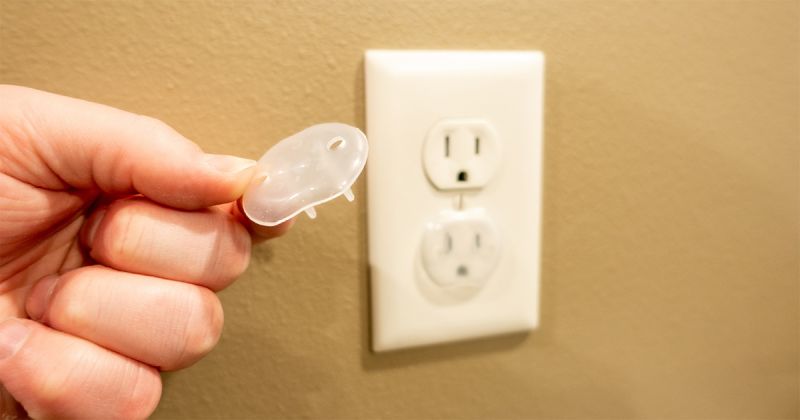
How to Childproof Your Home’s Electrical System in Tallahassee
Due to technological advances and enhanced safety standards, U.S. household electrical systems are safer than ever. For example, the advent of GFCIs (ground fault circuit interrupters) and electrical codes requiring them have more than halved the annual number of household electrocution fatalities since 1970.
However, despite electrical safety codes and technological advancements, household electrical systems remain inherently hazardous, especially concerning children. Of the 30,000 or so U.S. non-fatal electrocution incidents recorded annually in the U.S., 20% affect children, usually in the home. Conversely, most non-fatal adult electrocutions occur in occupational settings. In particular, electrical outlets represent a distinct childhood safety risk. According to the Electrical Safety Foundation International (ESFI), about 2,400 children are treated annually in the U.S. for outlet-related injuries.
The Tallahassee electrical experts at Meeks Electrical Services are well-versed in household electrical safety. They are dedicated to installing family-friendly home wiring and optimizing the safety of residential electrical systems in the Tallahassee area. To help you further childproof your home’s electrical system, they offer the following electrical safety tips:
Start with Your Electrical Outlets
Most new parents are aware that exposed electrical outlets pose a significant threat to curious children, who may insert objects into them. While this typically causes low-voltage shocks, roughly seven children per day require emergency room care in the U.S. due to children’s interactions with exposed outlets, according to the ESFI.
The foundation believes that at least 70% of U.S. parents take measures to childproof outlets. However, 86% of parents who do so use plastic outlet caps instead of tamper-resistant receptacles (TRRs). While childproof plastic outlet caps can help prevent children from getting shocked by outlets, they are not infallible. A Temple University study determined that 47 percent of four-year-olds could easily remove one brand of outlet cap. Even more worrisome, the researchers found that 100% of two- to four-year-olds could remove another brand, often within 10 seconds.
If you’ve never heard of TRRs, you are not alone, as the ESFI estimates that 44% of parents are unfamiliar with this form of electrical outlet childproofing. TRRs resemble ordinary outlets but feature spring-loaded receptacle cover plates that prevent object insertion unless equal pressure is applied to both receptacle points. This helps prevent the insertion of foreign objects and subsequent electrical shock. TRRs are so effective that the National Electrical Code now requires their installation in all new home construction.
Ensure Your Tallahassee Home has GFCI Protection
Most people know that water and electricity do not mix, and parents know that children love to play with water. Thus, if you live in an older Tallahassee home, check outlets located anywhere they can be exposed to water—bathrooms, kitchens, laundry rooms, garages, outdoors, and swimming pool areas—to ensure they are ground fault circuit interrupter (GFCI) types. GFCIs immediately cut electrical flows through the outlet when they detect abnormalities.
Regarding safety, if your bathing child accidentally knocks a plugged-in hair dryer into the tub, it could prove fatal if the outlet is not GFCI protected. A GFCI outlet can prevent such electrocutions, but it is a last line of defense, and you should always keep electrical devices well away from water, especially where children are involved.
Additionally, GFCI outlets have test buttons to warn you if its components are wearing out, damaged, or if its circuit interruption capability is otherwise compromised. You should regularly test your home’s GFCI outlets, especially after a power outage or nearby lightning strike, as they can damage GFCI circuitry. For greater parental peace of mind, consider asking your Tallahassee electrician to install whole-circuit GFCI protection in your breaker panel.
Check Your Tallahassee Home for Wiring Hazards
Damaged or exposed wiring causes roughly 20% of all annual U.S. electrocution deaths, according to the ESFI. As such, you should inspect your home’s outlets, switches, lighting, and other electronic components for damage and exposed wiring. Don’t forget to inspect all cordage used for appliances and other devices, and repair or replace any discovered damage. For additional protection for small children, remove, shorten, or secure electrical cords against baseboards or under furniture to reduce their ability to tug or chew on them.
Schedule a Home Electrical Safety Inspection
To ensure the best protection for your children and ensure optimal electrical safety in your Tallahassee home, contact your favorite electrician to schedule a comprehensive home electrical safety inspection. Older, 20-plus-year-old homes and those that have been exposed to water damage face the most significant electrical risks, especially if they haven’t undergone recent inspections. A licensed Florida electrician—like those at Meeks—will check:
- Wiring
- Breaker panel
- Potential code violations
- GFCI protection
- TRRs
- Other possible hazards
Based on their findings, your electrician will recommend upgrades and safety feature installations accordingly.
Turn to Meeks for Your Tallahassee Electrical Service Needs
To schedule your home electrical safety inspection or upgrade outdated or unsafe electronics, don’t Google “residential electrician near me”—contact the professionals at Meeks. With over 45 years of delivering outstanding electrical services to Leon County residents, you can also reach us by calling (850) 575-3201.